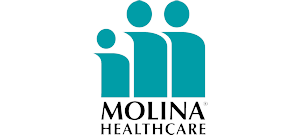Unlike group sessions, one-on-one therapy allows for tailored treatment plans that address each client’s unique needs, traumas, and goals. Whether you’re battling alcohol, opioids, meth, or other addictions, our licensed therapists use evidence-based approaches to help you heal—mind, body, and spirit.

What Is Individual Therapy?
- Uncover underlying causes of addiction (trauma, mental health disorders, stress)
- Develop personalized coping mechanisms
- Set achievable recovery goals
- Address co-occurring disorders (like anxiety, depression, or PTSD)
Unlike group therapy, individual sessions offer complete confidentiality and a safe space to discuss sensitive issues without judgment.
How Does Individual Therapy Work?
A mental health professional evaluates your history, triggers, and mental health needs. Using this information our team creates a custom treatment plan based on your mental health goals and needs. This assessment provides a starting point for treatment, but your therapist or counselor will continue to work with you and adjust the treatment plan as needed.
For addiction therapy, there are many useful techniques, including:
- Cognitive Behavioral Therapy (CBT): Identifies and changes negative thought patterns.
- Dialectical Behavior Therapy (DBT): Helps regulate emotions and improve relationships.
- Motivational Interviewing (MI): Strengthens commitment to recovery.
- Trauma Therapy (EMDR, CPT): Addresses past trauma contributing to addiction.
Regular check-ins ensure you’re moving toward sobriety and mental wellness. While completing our outpatient program for addiction, our team will help monitor your progress and guide you toward recovery every day. Progress tracking enables us to further customize treatment. It can also serve as a motivator to those in recovery.

Recovery Begins Here
What to Expect in Individual Therapy
During your first session, your therapist will focus on getting to know you and building trust. You’ll talk about your history with addiction, your mental health background, and the goals you hope to achieve through treatment. This initial conversation also covers important topics like confidentiality and what you can expect from the therapeutic process, so you feel comfortable moving forward.
As therapy progresses, ongoing sessions will dive deeper into the emotional and behavioral roots of your addiction. You’ll explore past trauma, identify personal triggers, and examine patterns that may be fueling substance use. Your therapist will also help you develop practical tools for managing stress, resisting cravings, and improving emotional regulation. Many clients use this time to work through relationship challenges, feelings of guilt or shame, and other emotional wounds connected to their addiction.
The therapist’s role throughout this journey is to offer guidance, not judgment. At Supreme Recovery, your therapist is there to help you recognize self-destructive behaviors and replace them with healthier habits. They’ll act as a steady source of support and accountability as you move through the healing process, empowering you to build a more balanced and fulfilling life in recovery.

Individual vs. Group Therapy for Addiction: Understanding the Differences
Individual therapy offers one-on-one attention, allowing clients to explore their personal history, trauma, and emotional challenges in a private, confidential setting. These sessions are tailored to the individual’s specific needs and move at a pace that supports deep, meaningful work. This format is ideal for addressing sensitive issues that may be difficult to share in a group, such as past abuse, mental health struggles, or personal triggers. Individual therapy provides a focused space for clients to develop coping strategies, set goals, and build a strong therapeutic relationship with their counselor.
On the other hand, group therapy provides the power of peer support and shared experience. In a structured group setting, clients come together to discuss common challenges, learn from one another, and practice communication and social skills. While it’s less private than individual sessions, group therapy is always conducted in a respectful, supportive environment. It’s particularly valuable for building accountability, fostering a sense of community, and showing clients that they are not alone in their recovery journey.
At Supreme Recovery, we encourage clients to participate in both individual and group therapy. This combination allows for personal introspection and growth through one-on-one counseling, while also offering the social connection and mutual encouragement that only group settings can provide. Together, these approaches create a comprehensive foundation for long-term sobriety and emotional healing.


Benefits of Individual Therapy
- Personalized Care: Therapy is tailored exclusively to your needs.
- Safe Space: Discuss sensitive topics (trauma, relapse) without fear of judgment.
- Faster Breakthroughs: Without group distractions, you can dig deeper into root causes.
- Stronger Therapist Bond: Build trust with a professional who truly understands you.
- Flexible Scheduling: Sessions adapt to your progress and life commitments.
Getting Help For Yourself or a Loved One
- Admit You Need Help: Acknowledging addiction is the hardest and most crucial step.
- Reach Out to Supreme Recovery: Call us for a confidential assessment.
- Start Therapy: Begin sessions in-person or via secure telehealth options.
- Commit to the Process: Recovery isn’t linear, but every session brings progress.
For loved ones: If someone you care about is struggling, encourage them gently. Offer to help them make the call.













